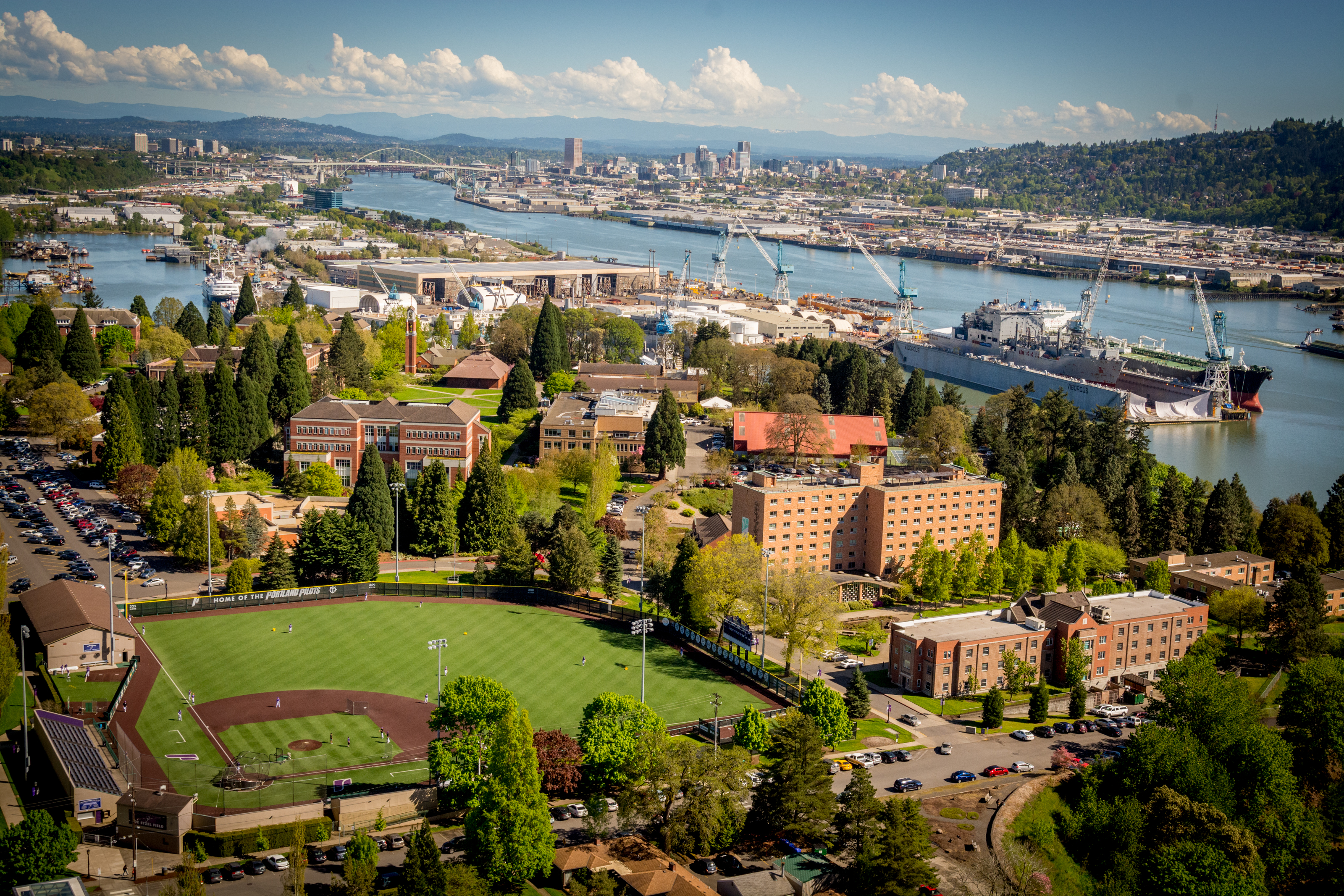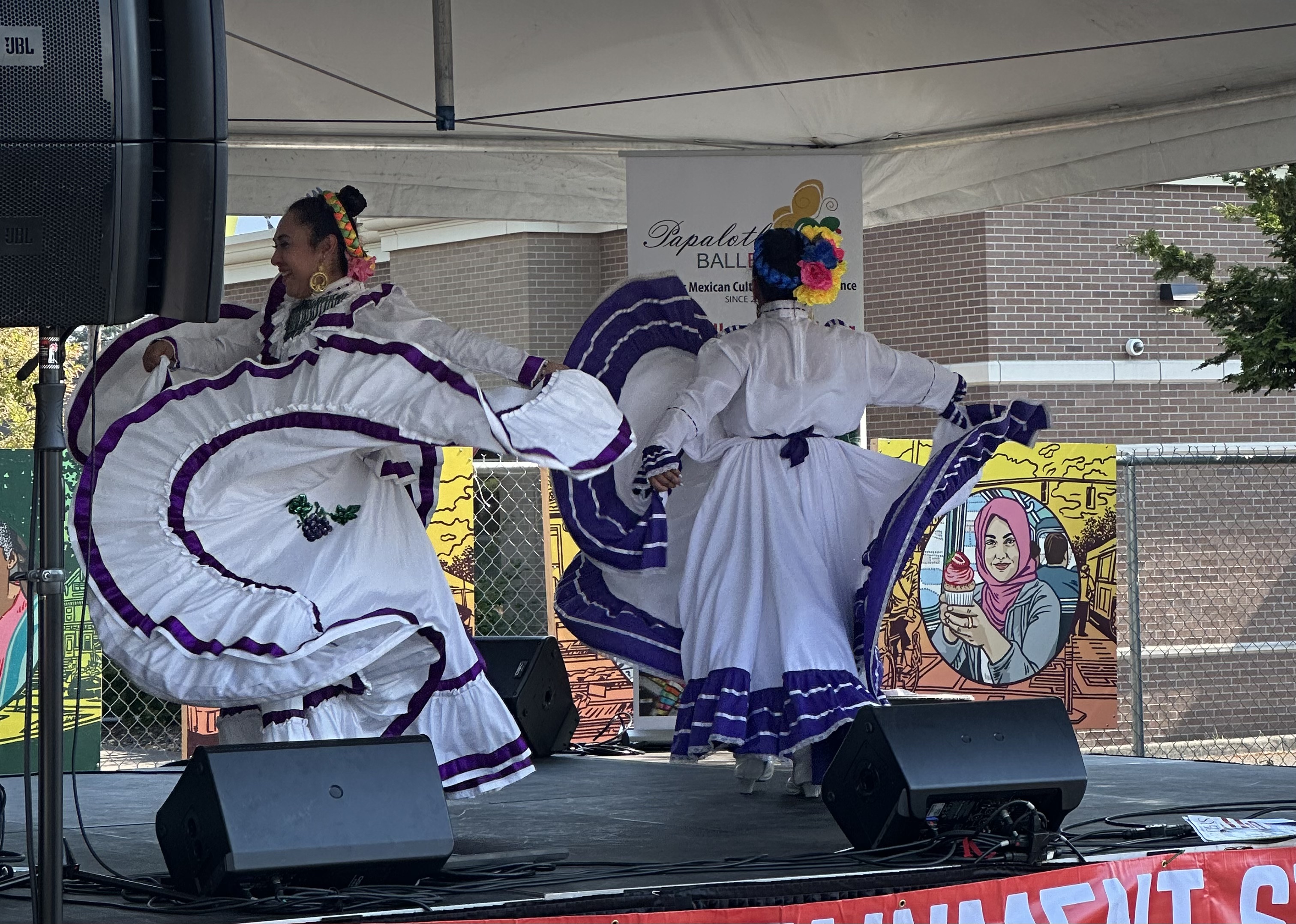

“It’s about unity,” Ayrianna Hall, ’26, a sophomore Psychology major with minors in Gender, Women, and Sexuality Studies and Ethnic Studies, explains on attending the opening ceremony of Portland’s annual Welcoming Week.
The celebration, a chance to “bring together neighbors of all backgrounds to build strong connections and affirm the importance of welcoming and inclusive places,” occurs each September and features cross-cultural art, performances, information, and community discussions for all of Portland to engage in (Welcoming America). Welcoming Week celebrates the diverse communities that Portland encompasses— an incredible opportunity to recognize the impact that immigrant community members have on the city, as well as to welcome new migrants to the community.
Hall was among thirty other students in my courses “Politics and Identity” and “Global Migration and Displacement” that participated in this year’s Welcoming Week. For most of my students, this is their first time engaging in, or even learning about, the celebration.
As Emma Hippler, ’24, a senior Political Science and Spanish major minoring in Gender, Women, and Sexuality Studies, shared upon attending the Festival of Nations, “This experience was reminiscent of many of our in-class discussions that emphasize the importance of acceptance.” For students studying subjects like social sciences and community inclusion, engaging in a celebration like Welcoming Week helps reaffirm their in-class education by giving them hands-on experience in a large community setting. “[Welcoming Week] is an important step towards fostering social cohesion through intercultural mediums, such as dance, music, and food,” Hippler also commented.
Students listened to stories by refugees and their paths of becoming American, learned about hate crime reporting in Oregon and bystander intervention, and collected information on a range of community resources as part of Welcoming Week.
A common take-away for all students was that the act of ‘welcoming’ is a two-way process. Julianna Pedonne, ’25, a Political Science major with minors in Constitutional Studies and English, observed this notion at the Opening Ceremony. She comments, “One of the main organizers, who later identified as Muslim, came up to us from across the grass to welcome us to join the event. After I explained that I was here for a class and was excited to learn more about the resources, she instantly lit up… For the rest of the time we were there, we were welcomed to make some arts and crafts and were given a ton of stickers and pins to take home… The organizer made me feel welcomed and seen, even though we come from different social groups, and I was honored, impressed, and intrigued about all the resources I learned about at each different booth.”
Community-based learning has been an integral part of my pedagogy. As a scholar-practitioner and as a migrant woman myself, I have built strong relationships with community-based organizations in Portland, and my students and I have been warmly embraced in these spaces. For instance, in my course “Muslims and Islam in Europe and the US,” my students and I visit the Portland Rizwan Mosque in Southwest Portland and break fast (Iftar) with the community during Ramadan. Students have described this learning experience as ‘eye-opening,’ ‘inspiring,’ and ‘insightful.’ Jonas Gertsen, ’24, an international student-athlete and major in Political Science, who took my course on Muslims and Islam in Spring 2022 and is currently in my migration and displacement course, previously shared, “I found both visits [mosque and iftar] very interesting and learned a lot. When having the conversation with X [anonymized], I was really fascinated about his path to Islam and what reasons he had to not only be Muslim but join this specific mosque. His perspective is not a perspective that I have heard before and it made me realize that there is a lot of different reasons and ways to be Muslim.”
Facilitating community-based learning holds a special place for me, not only because it greatly enhances students’ understanding of how the policies and laws that we study in class affect lived experiences, but also because I get to share a bit of myself, as a member of those communities, with them as well.
By Dr. Lara-Zuzan Golesorkhi, Assistant Professor of Political Science and Global Affairs, Affiliate Faculty in Gender, Women, and Sexuality Studies